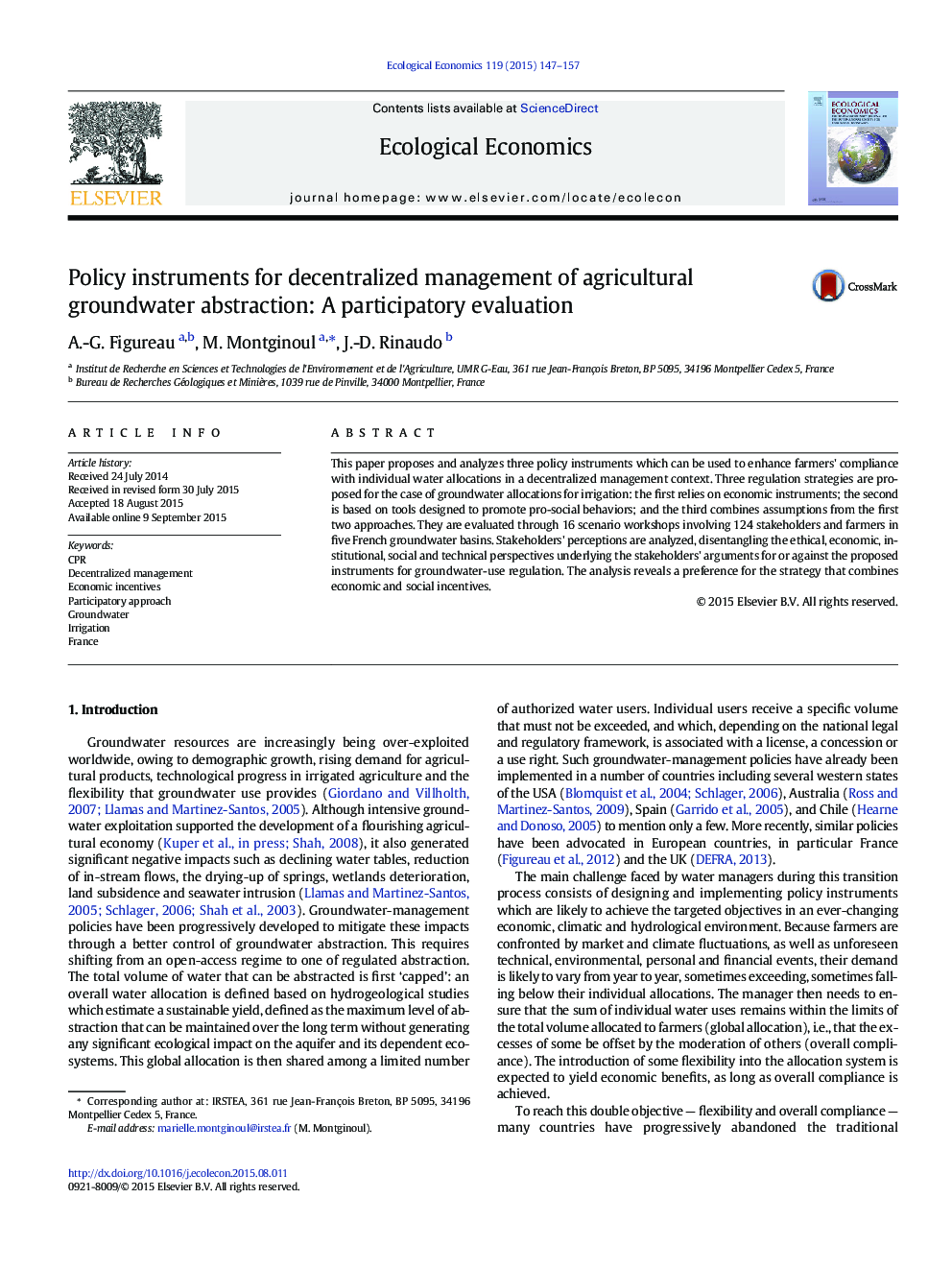| Article ID | Journal | Published Year | Pages | File Type |
|---|---|---|---|---|
| 5049237 | Ecological Economics | 2015 | 11 Pages |
â¢Three regulatory strategies were designed, combining economic and social incentives.â¢16 scenario workshops were carried out involving 124 stakeholders in five French groundwater basins.â¢Economic incentives may be efficient if well designed, but they find little acceptance.â¢Social incentives are acceptable but their effectiveness depends on pre-existing community cohesion.â¢Participatory evaluation methodologies enable the integrated evaluation of environmental policies.
This paper proposes and analyzes three policy instruments which can be used to enhance farmers' compliance with individual water allocations in a decentralized management context. Three regulation strategies are proposed for the case of groundwater allocations for irrigation: the first relies on economic instruments; the second is based on tools designed to promote pro-social behaviors; and the third combines assumptions from the first two approaches. They are evaluated through 16 scenario workshops involving 124 stakeholders and farmers in five French groundwater basins. Stakeholders' perceptions are analyzed, disentangling the ethical, economic, institutional, social and technical perspectives underlying the stakeholders' arguments for or against the proposed instruments for groundwater-use regulation. The analysis reveals a preference for the strategy that combines economic and social incentives.
